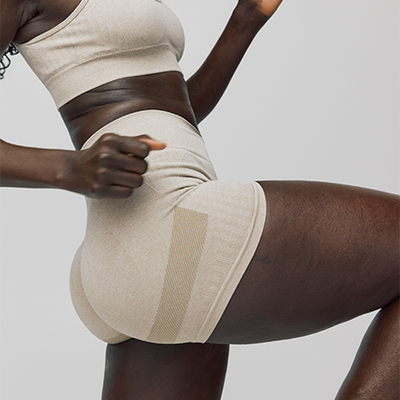
In this article /
Do you find yourself feeling sad around the holidays? While it’s normal to feel down some days, constantly feeling depressed and unmotivated for days at a time is a more serious issue. Not to mention — how can depression affect your period?
As the seasons change, it’s not uncommon for mood to be affected. If this is the case for you, you may be suffering from seasonal affective disorder (SAD). The holidays fall right in the middle of the changing seasons, so unfortunately this time of celebration and gathering with friends and family can feel the total opposite for those dealing with SAD.
We dove deep into learning about seasonal affective disorder and have laid out the most important information for you here. Keep reading to learn more about SAD, as well as how mood disorders can affect your menstrual cycle.

What is SAD?
According to the Mayo Clinic, seasonal affective disorder (SAD) is a mental health condition related to changes in seasons. SAD begins and ends at roughly the same times every year.
That being said, SAD doesn’t only occur in the winter. It can also affect people when the seasons change in the spring/summer. It is specific to seasonal shifts, but much more common in the winter months when it’s darker outside.
If you are more prone to SAD in the winter, you may notice signs and symptoms cropping up when the weather changes in the fall and winter. And if you experience SAD during the spring and summer months, people with SAD tend to develop symptoms starting in the early spring. When the seasons change again, your symptoms will start to resolve. SAD will get put on the back burner until your next seasonal trigger.
Whether you experience winter-pattern SAD or summer-pattern SAD, this type of depression is just as serious as others. It can impact your quality of life and ability to cope with day-to-day tasks.
Signs & Symptoms
There are many signs and symptoms of SAD that might lead you to better understand how you or someone you know is struggling.
Common signs and symptoms include:
- trouble sleeping or oversleeping,
- lack of motivation,
- social withdrawal,
- low energy,
- and difficulty focusing.
Other symptoms might include loss of interest in previously enjoyed activities, feelings of hopelessness, anxious thinking, a change in eating habits, and extreme weight loss or weight gain. These signs and symptoms can also be very similar to a major depressive disorder.
Having knowledge of these signs can help you to access proper treatment, be a listening ear for someone else in need, or help to spread awareness. Anyone can develop SAD, so if you think you or someone you know may be suffering, these signs can help lead you to beneficial treatment.
Treatment for SAD
Some simple ways to treat SAD include light therapy, regular exercise, and focusing on a healthy diet.
Exercise
Regular exercise doesn’t only keep your body in good shape, but can also help by regularly releasing feel-good endorphins. Start small and slowly build up a regular routine. Any amount of movement can help to cope with SAD and decrease feelings of helplessness.
Nutrition
Resist the urge to comfort yourself with sugar and carbohydrate dense foods. Going through the day on a blood sugar roller coaster can affect both energy levels and mood. By balancing your blood sugar and eating a healthy diet, you can help to curb feelings of depression and hopelessness.
Light Therapy
Light therapy is commonly associated with the treatment of SAD. It is especially beneficial for those struggling with winter-pattern SAD, as we experience a lack of daylight in the winter months. Purposeful exposure to light therapy has been found to help improve mood.
Light therapy is performed by sitting in front of a lightbox for up to 30 minutes a day. The light box imitates sunlight. This exposure to light helps encourage your brain to naturally produce more serotonin.
Another form of light therapy is getting as much natural sunlight as possible, by letting light into your home during the day, sitting near windows, and getting outdoors as frequently as possible. When it feels warm enough, you can even exercise outdoors in the sun to try and improve your symptoms.
When it impedes your ability to cope, the National Institute for Health and Care Excellence (NICE) recommends treating SAD in the same way as other types of depression.
Treatment for Depression
Another effective treatment option is seeking mental health counseling like cognitive behavioral therapy (CBT). If you are suffering severely, consider also discussing medication options for seasonal affective disorder with your physician. Bupropion, an effective selective serotonin reuptake inhibitor (SSRI), is commonly prescribed to lift mood by increasing serotonin in the brain.

Light therapy is a common treatment of Seasonal Affective Disorder (SAD).
Can Depression Affect Your Period?
As menstruators, we know that depression and anxiety can creep in while we’re on our periods and throughout our menstrual cycle. Besides PMS, hormones rise around ovulation and can trigger mood fluctuations mid-cycle also. Depression can feel heightened at this times, if you have been previously diagnosed with SAD or a major depressive disorder.
But can depression affect your period volume and regularity? Yes! It can impact period volume and regularity as well. When dealing with depression, you may experience irregular or missed periods. It’s always a good idea to have your DivaCup on hand for unexpected periods or period volume. It can be helpful, whether you struggle with SAD or not, to track your menstrual health and any symptoms you experience, in order to get ahead of them.
SAD can impact your everyday life, changing your attitude from positive to negative very quickly. If you’re suffering from extended “winter blues”, check in with your physician to discuss whether or not you might be experiencing seasonal affective disorder. Seek out the best treatment options for you, so that you can live your life by effectively dealing with SAD.





















